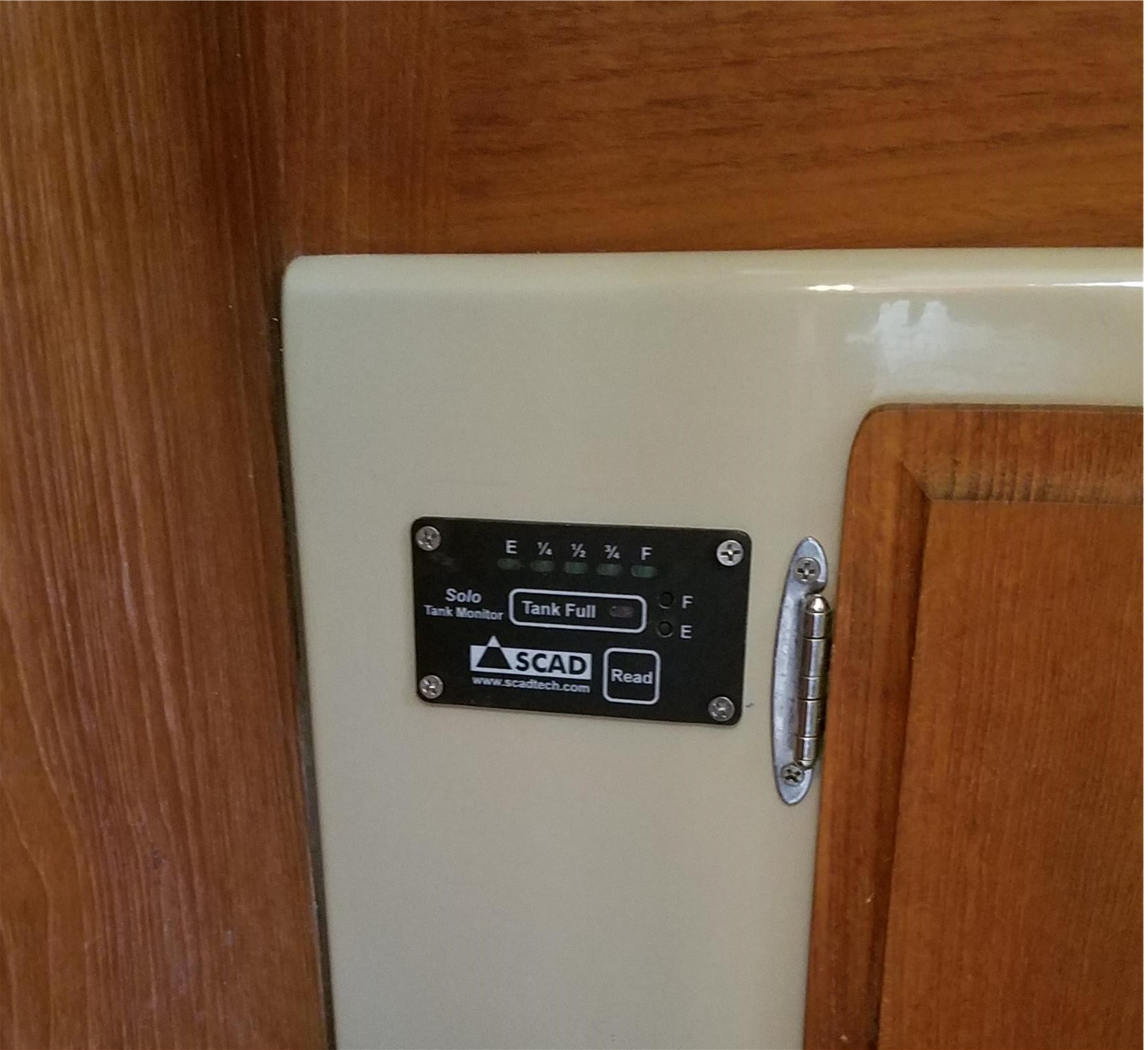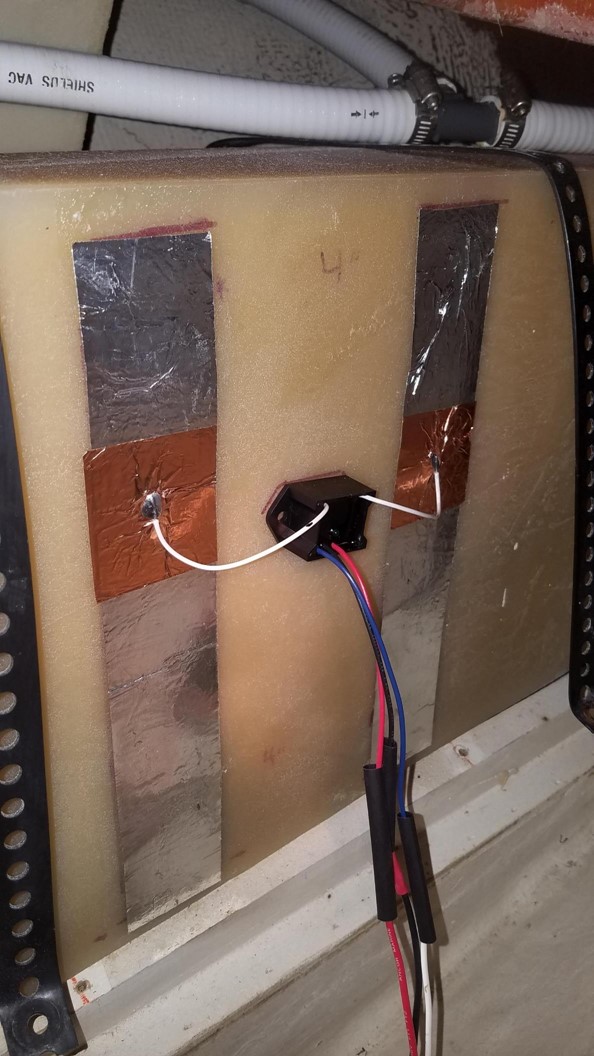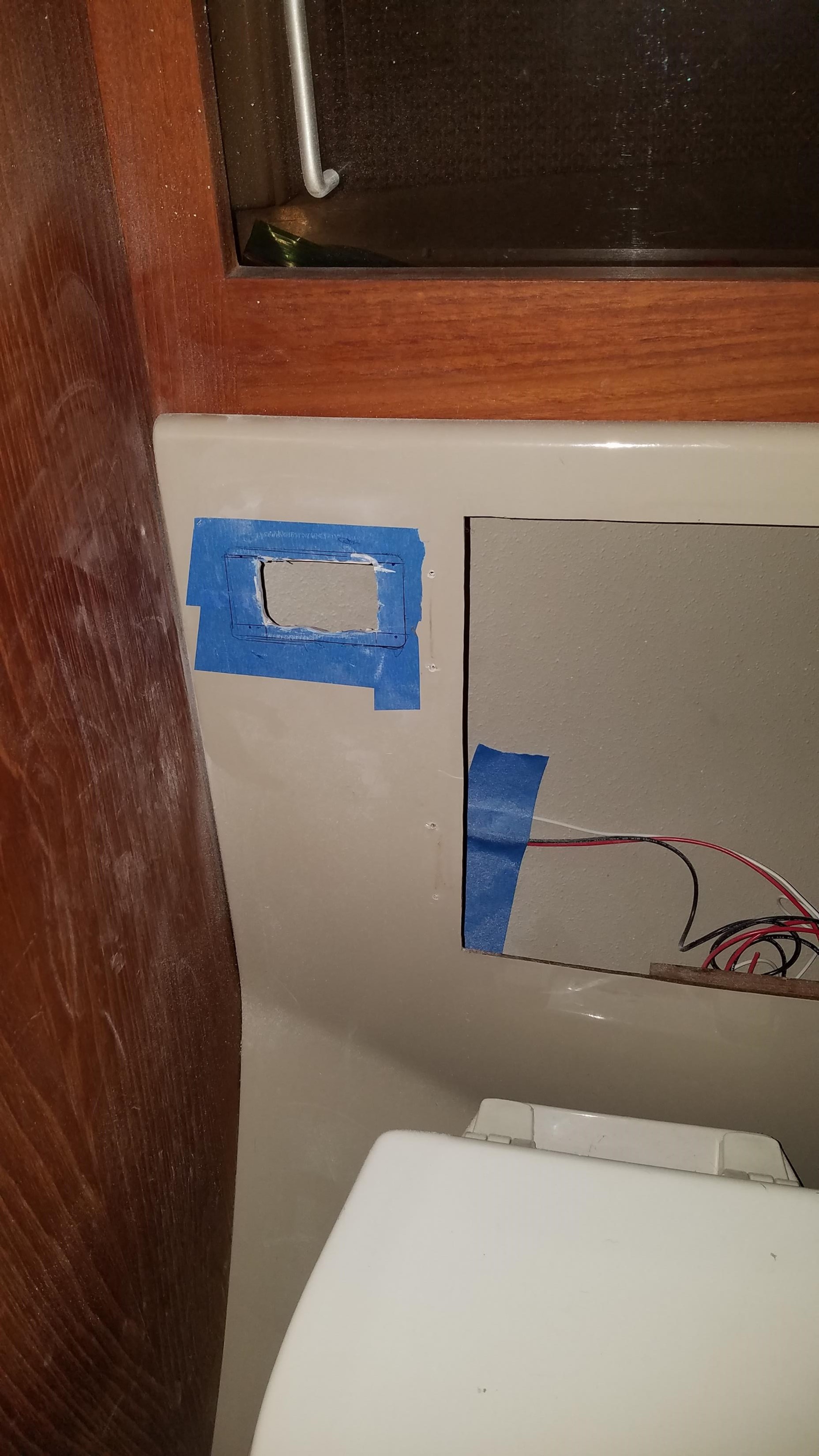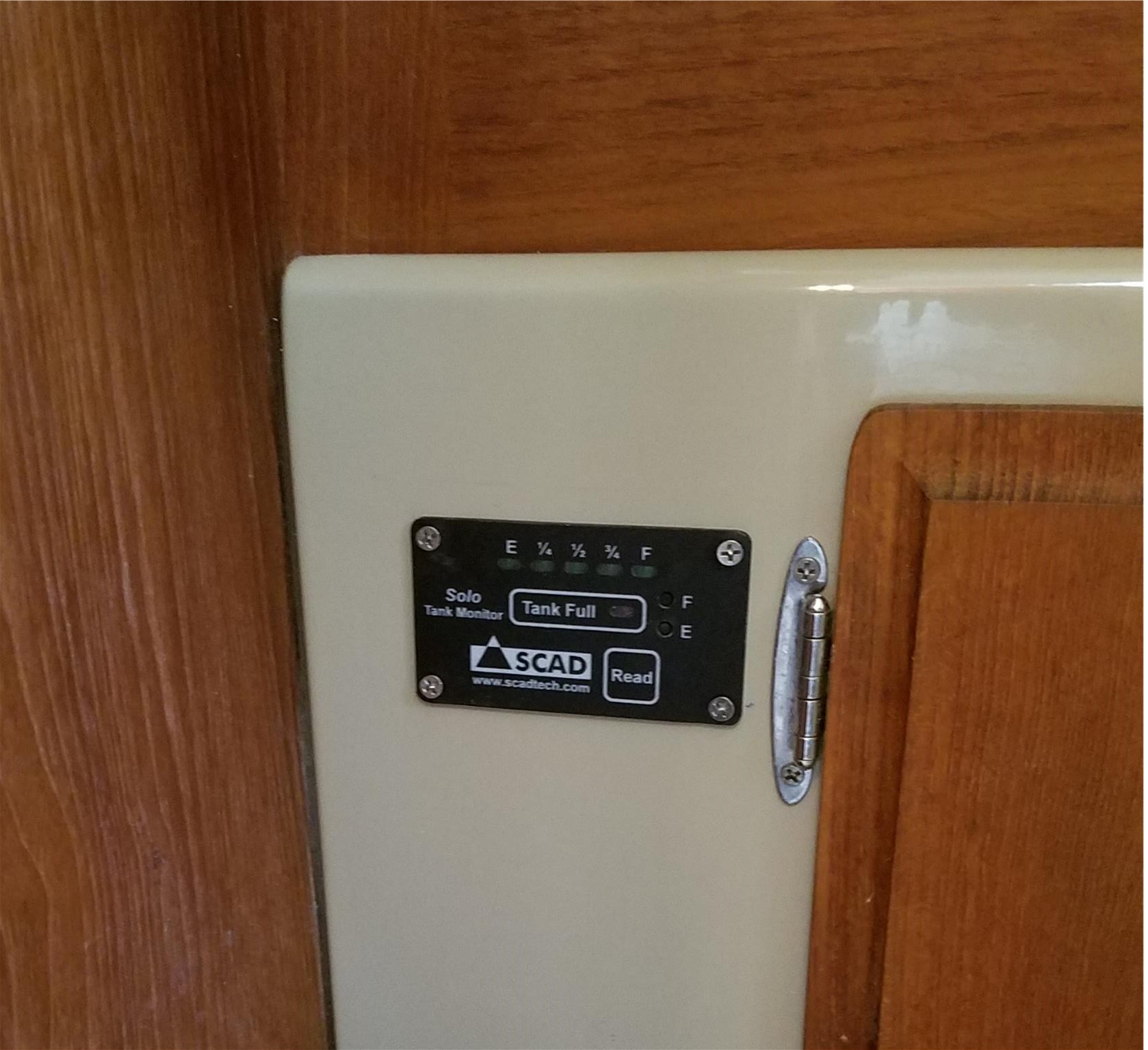DO YOU NEED A HEAD TANK MONITOR ON YOUR BOAT?

We own a 1986 31' O'Day sloop sailboat that has a head and head storage tank. The head storage tank did not have a monitor. Our head tank is under our V-Berth, and once the berth is set up for sleeping, it isn't easy to see the storage tank. We have to lift the V-Berth cushions and pull up the V-Berth storage container to access where the tank is to know how full it is. Checking the tank level was a time-consuming and uncomfortable process. Since it was difficult to check the tank level, we didn't do it that often. After having a few situations where the tank was allowed to get too full, we decided that we needed to install a tank monitor to avoid overfilling the tank. As anyone can imagine, it is not pleasant when the holding tank is too full when you go to pump it out.
We wanted a non-intrusive tank monitor, so we wouldn't have to cut into our existing tank. We did not want to replace our tank since it was installed under the V-Berth when the boat was manufactured and would have been very difficult to remove and then install a new one.
While attending the 2019 Toronto International Boat Show, we went looking for a tank monitor system. We found a non-intrusive tank monitor that would show us how full our tank was and decided to purchase it. The monitor that we bought is the SCAD SOLO Tank Monitor & Adhesive Sensor.
I didn't get a chance to install the monitor until the Spring of 2020. The installation was pretty easy, but as with most boat projects, it took me longer than I thought it would. The SOLO Tank Monitor has the following features:
- The panel will monitor the liquid level on one (1) tank.
- Panel size: 3.75" X 2"
- Data is displayed as a five (5) position LED bar graph.
- Simple to install, set up, and operate.
- Compatible with both capacitive level sensors and 240-33 Ohm float sensors.
- Features the exclusive EZ-Profile software algorithm, which corrects for odd tank shape and sensor type.
- Optional autonomous monitoring and tank full alert light.
Here are a couple of pictures from the installation process:



We are so glad that we installed this tank monitor. Now it is just a push of a button ("Read" button) to see how full the tank is. Once we know the tank is getting close to being full, we make arrangements to go to the head tank pump-out station. This way, we do not risk letting the tank get too full. The monitor saves us time and prevents us from crawling under all the V-Berth bedding and lifting out the storage boxes located above our head tank. Since it is so much easier to determine the tank level now, we check it regularly.

